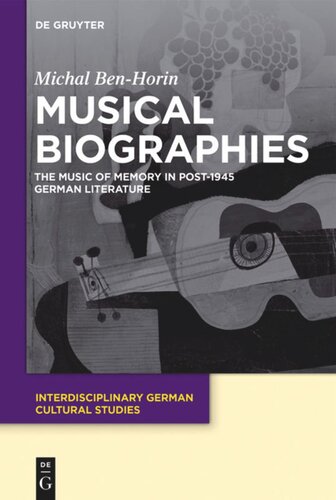

Most ebook files are in PDF format, so you can easily read them using various software such as Foxit Reader or directly on the Google Chrome browser.
Some ebook files are released by publishers in other formats such as .awz, .mobi, .epub, .fb2, etc. You may need to install specific software to read these formats on mobile/PC, such as Calibre.
Please read the tutorial at this link: https://ebookbell.com/faq
We offer FREE conversion to the popular formats you request; however, this may take some time. Therefore, right after payment, please email us, and we will try to provide the service as quickly as possible.
For some exceptional file formats or broken links (if any), please refrain from opening any disputes. Instead, email us first, and we will try to assist within a maximum of 6 hours.
EbookBell Team

4.3
58 reviewsSince the second half of the twentieth century various routes, including history and literature, are offered in dealing with the catastrophe of World War II and the Holocaust. Historiographies and novels are of course written with words; how can they bear witness to and reverberate with traumatic experience that escapes or resists language? In search for an alternative mode of expression and representation, this volume focuses on postwar German and Austrian writers who made use of music in their exploration of the National Socialist past. Their works invoke, however, new questions: What happens when we cross the line between narration and documentation, and between memory and a musical piece? How does identification and fascination affect our reading of the text? What kind of ethical issues do these testimonies raise? As this volume shows, reading these musical biographies is both troubling and compelling since they ‘fail’ to come to terms with the past. In playing the haunting music that does not let us put the matter to rest, they call into question not only the exclusion of personal stories by official narratives, but also challenge writers’ and readers’ most intimate perspectives on an unmasterable past.